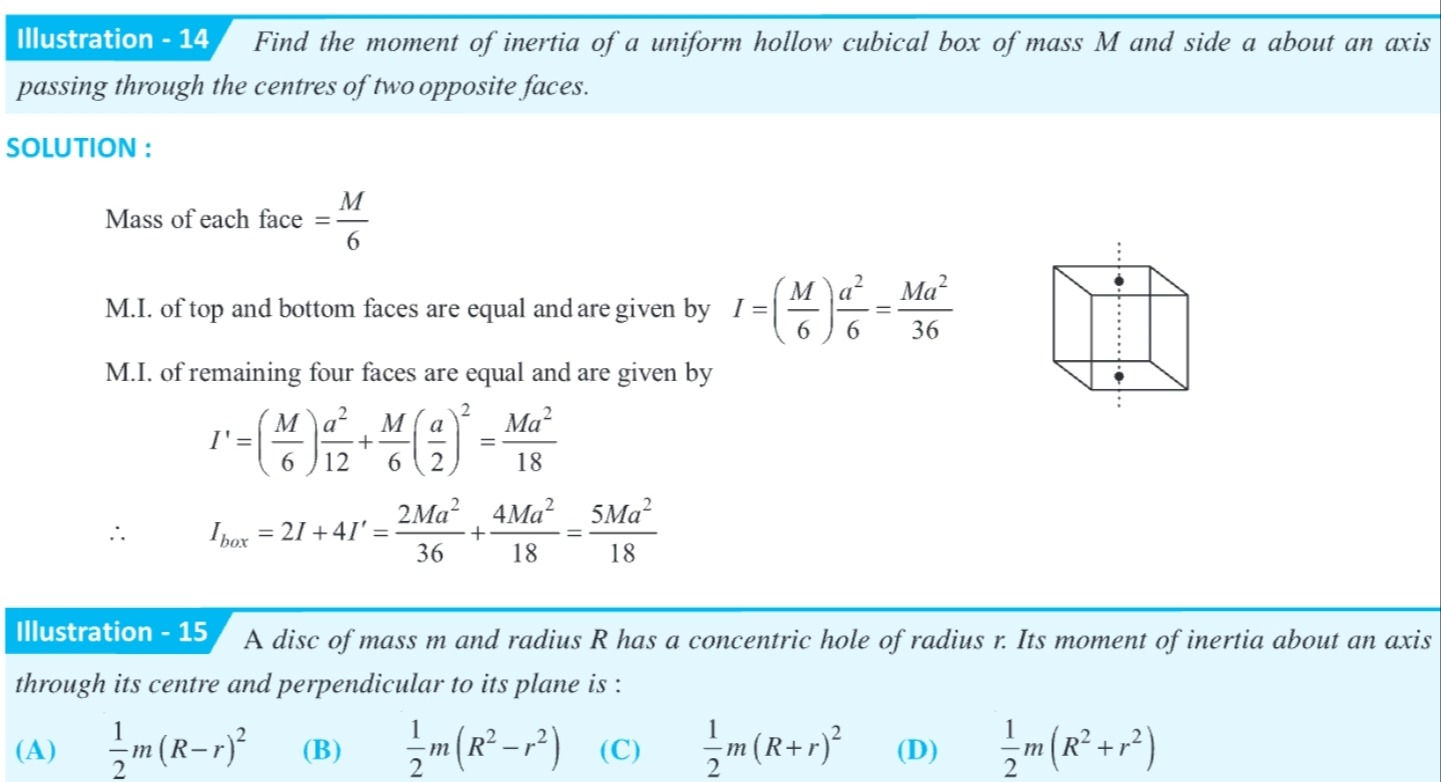Question
Question: A disc of mass $m$ and radius $R$ has a concentric hole of radius $r$. Its moment of inertia about a...
A disc of mass m and radius R has a concentric hole of radius r. Its moment of inertia about an axis through its centre and perpendicular to its plane is :

A
21m(R−r)2
B
21m(R2−r2)
C
21m(R+r)2
D
21m(R2+r2)
Answer
21m(R2+r2)
Explanation
Solution
The moment of inertia of a disc with a hole is the difference between the M.I. of a solid disc of radius R and a solid disc of radius r, assuming uniform mass density σ. I=21σπR4−21σπr4=21σπ(R4−r4). The mass of the disc with the hole is m=σπ(R2−r2), so σπ=R2−r2m. Substituting σπ, we get I=21mR2−r2R4−r4=21m(R2+r2).
